|
In Matthew 25:14-30, Jesus shares a parable often called "The Parable of the Talents" or "The Parable of the Bags of Gold." In this parable, the master of an estate entrusts three of his servants with bags of gold while he goes away on a journey. It is clear from this parable that this money is the master's, and as his servants these three men are to steward the money in a way that honors the master.
After a long time (v. 19) the master returns, and his servants report back to him. The first two servants are commended: "Well done, good and faithful servant." They're invited to share the master's happiness and will continue to contribute meaningfully (vv. 21, 23). The third servant, however, is both wicked and lazy (v. 26). He hasn't added to his master's wealth at all. It's likely that the "spending power" of the bag of gold with which he is entrusted is actually less, given that the master was gone "a long time" (v. 19) and the realities of inflating costs. The third servant did nothing with this money that would even add interest to it. This third servant, then, is then excluded from the master's joyful presence and assigned to a place of "darkness, where there will be weeping and gnashing of teeth" (v. 30). There's obviously a lot that can be said about this parable. I want to focus our attention here on the clear point of the parable: we're to be faithful servants with what we've been given. (If you want to hear a full 40 minute sermon I've given on this passage, click here.) And that means the next right question is this: What drivers motivate my faithfulness? How can I anticipate with confidence hearing these words from Jesus someday, "Well done, good and faithful servant"? Here are four drivers — straight from this parable — that can help us anticipate hearing these words from Jesus ourselves.
0 Comments
What IS the church?
The last two months have seen churches empty on Sundays, and significant shifts to the programs of the local church. We've now seen by experience what many have always known to be true: The church is not the sum total of its programs. Nor is the church simply the building that many visit on Sunday mornings. But this realization simply invites another great question - the one that starts this post: What, then, IS the church? This question isn't abstract. The way we answer this question has massive practical implications for how we continue to navigate the ever-changing landscape and move into what everyone is calling "the new normal." So let's dig into this question and briefly look at three biblical and theological truths about what the church IS. The church is a transformed people living with a God-given purpose who are shaped by 6 key priorities. Not too long ago I ran across a 10 min video that Justin Taylor posted on The Gospel Coalition, capturing how a tribe in Indonesia responded when they received copies of the New Testament in their own language. Because I wanted to keep this video easily accessible for myself, and because of how this video reinforces the value of biblical literacy (something the Brookside Institute is all about), I wanted to post it here as well. In John 5:39 Jesus teaches that the Scriptures testify about Him. Isaiah 55:10-11 tells us that God's Word accomplishes His purposes as it goes out. Since that's the case, we should celebrate and support every example of God's Word being made accessible to more and more people. As the Kimyal Tribe continues to engage God's Word, may it point them more and more to the greatness of Jesus, and may God accomplish mighty things through His Word among them! You may also be interested in...Looking for some of the best biblical and theological books to read in 2019? Below I've collected and listed five "sources" that are worth listening to for some worthwhile reads. My hope is that as you scan these lists, you'll find at least 2-3 books that strike your interest enough for you to pick up the book and dig in. Click on either the image or the title below and you'll be taken directly to a page where you can see which books are on that particular list. My Top 5 Reading Lists of 2018Interested in more?Below you'll find a few other links to related posts. Happy reading!
It's no exaggeration to say that Christianity stands or falls on Jesus' resurrection. If Jesus wasn't raised bodily from the dead, our faith is "useless" and "futile" (see 1 Corinthians 15:14 and 15:17-19). But if Jesus HAS been raised bodily from the dead...well, we'd better pay attention to Him. The Christian faith has meaning, our future has hope, and our mission matters.
So why is it credible to believe in Jesus' resurrection? Or even beyond that, why does it make the best sense of the evidence we have to believe that Jesus rose from the dead? Here are four lines of evidence that - when put together - build a strong case for the reliability of Jesus' resurrection. This posted in adapted from an earlier post on this site, first composed on October 31, 2014. Tonight is Halloween. A couple of my kids will likely be going door-to-door getting candy, and we'll probably be handing out candy to neighborhood kids from our door as well. But October 31 is significant for more reasons than just this. October 31 is also "Reformation Day" - the day in 1517 when a monk named Martin Luther nailed 95 Theses to a church door in Germany and sparked what we now call the Protestant Reformation. (For a recommended introduction to Luther's 95 Theses, check out this book.) Here's what Philip Schaff, a noted church historian, says about the significance of the Reformation: “The Reformation of the sixteenth century is, next to the introduction of Christianity, the greatest event in history. It marks the end of the Middle Ages and the beginning of modern times. Starting from religion, it gave, directly or indirectly, a mighty impulse to every forward movement, and made Protestantism the chief propelling force in the history of modern civilization.” If your'e looking to brush up a bit on Reformation history, check out this post from Ligonier Ministries. This post shares a bit more about the history of the Reformation and key players in it. I encourage you to take a few minutes on this Reformation Day of 2018 and check it out. Here's the post: "The Reformation and the Men Behind It" by Stephen Lawson
Please note the usual disclaimer, that my recommendation of this article is not necessarily an endorsement of everything else on the site where this was posted. As always, read both discerningly and graciously, and with the Bible as your final authority. If you ever check out the footer of this site, where we highlight the top 5 posts of the previous month, you'll have seen "What is Moralistic Therapeutic Deism? And How Does it Stack Up against Biblical Christianity?" has been on a #1 streak for a while (a long while!). And it's understandable why. Moralistic Therapeutic Deism (MTD) is often called the "default religion" of many Americans - whether they consciously articulate it or not. And MTD is definitely NOT a direct overlap of biblical Christianity. To understand the "background noise" that informs the perspective of many Americans - even American Christians - one needs to understand MTD. If you've not checked out the post, you can do so here. So as a nod to the popularity of this post, I'm officially going to "retire the jersey." I'll leave the post just as it is on the site and will include it in the "retired jersey" category of this site's "Library" page. However, moving forward I'll no longer include it in numbers 1-5 of each month's top posts (even though it continues to rank highly among the website "hits" for individual posts), thus allowing room for other posts. Interested in other posts that have gotten a lot of traffic on this site recently? Click here to check 'em out! Interested in seeing all of the "retired jersey" posts up to this point? Here they are:Based on the number of "hits" each month, here are the top 5 posts here on the Brookside Institute blog for the last six months - January 2017 through June 2017. Take a minute to scroll through the list below and either catch up on things you may have missed or revisit things that were especially helpful.
Every now and then I try to take some time and reflect on why the intentional teaching ministry of the church remains important. Whatever shape it takes, why is equipping and a teaching in the church, for the church, and by the church valuable?
At least one reason is the growth of secularism, pluralism, and "indifferentism" in America. Very simply stated, secularism is a worldview that pushes God to the margins. It's fine to believe in God on your own, the secularist may say, just don't bring any religious ideas or reasoning into the public square. Pluralism flows out of the reality that we are surrounded by people who believe very different things than than us - and it often goes a step further to say the no one religion can be exclusively true. "Indifferentism" (this is my term, I think) tries to explain the religious apathy of the "nones" and "dones" - those who adhere to no single religious expression (the "nones") or those who have "tried out" some religion and - for whatever reason - didn't stick with it. So what does all this have to do with catechesis - an intentional and systematic approach to teaching in the local church? Here's what: I recently ran across a 2009 article where Christian apologist, speaker and author Ravi Zacharias talks about "Defending Christianity in a Secular Culture." The whole thing is good, and I encourage you to read it.
In a few places throughout the article, Zacharias draws attention to the value of equipping the church, in the face of a secular culture that is increasingly hostile or indifferent towards Christianity. Below are some short quotes from the article where we see this: |
Tim WiebeChristian. Husband. Father. Pastor. Learner. Contributor. Reader. Categories
All
Archives
June 2024
|
© 2014-2024 | 11607 M Circle, Omaha NE, 68137 | www.thebrooksideinstitute.net

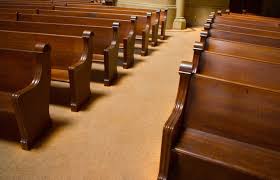

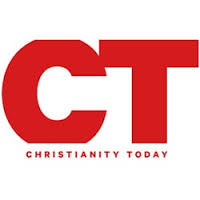


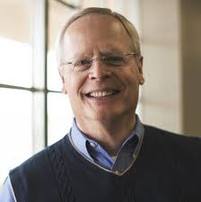
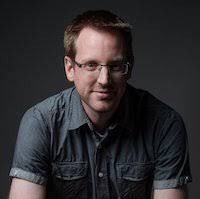

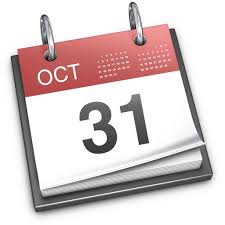



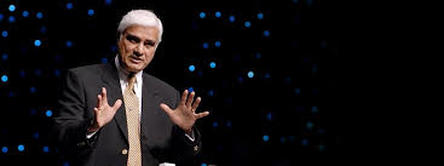

 RSS Feed
RSS Feed
